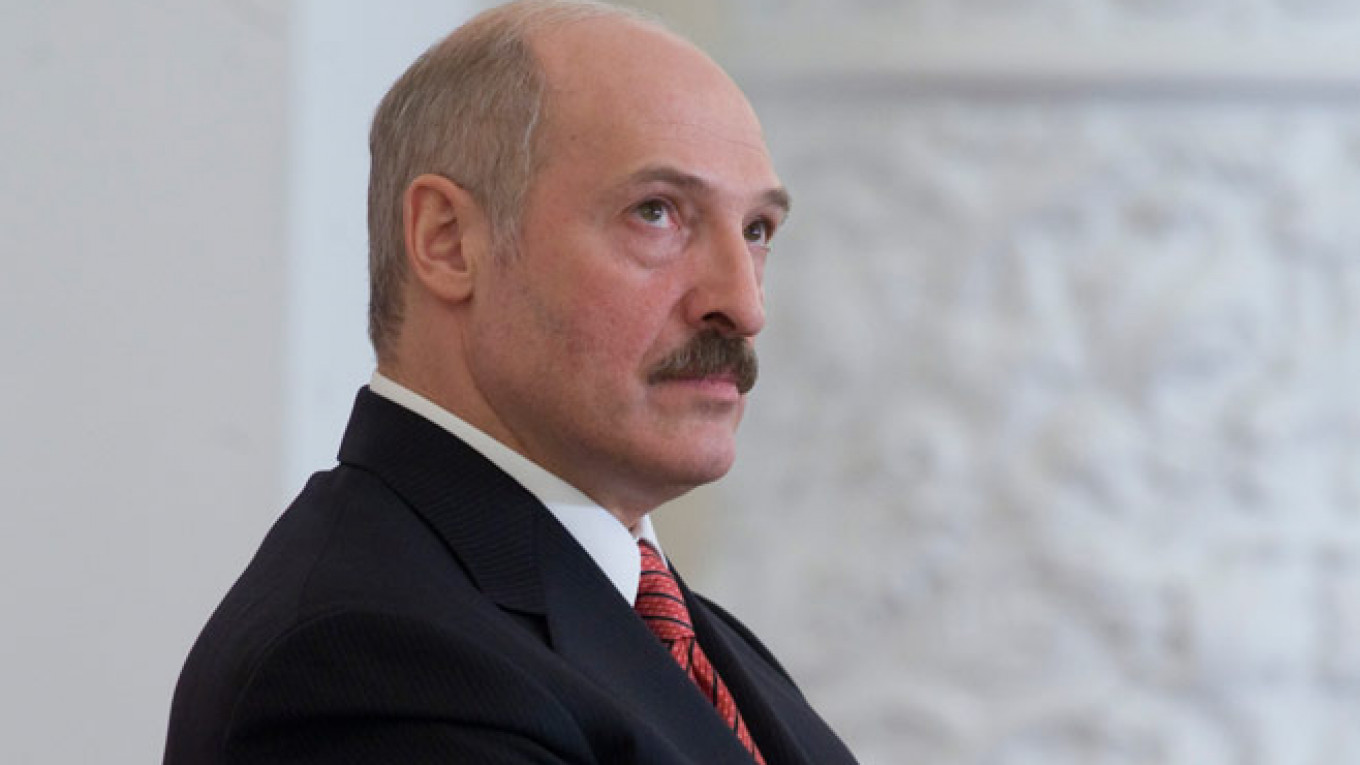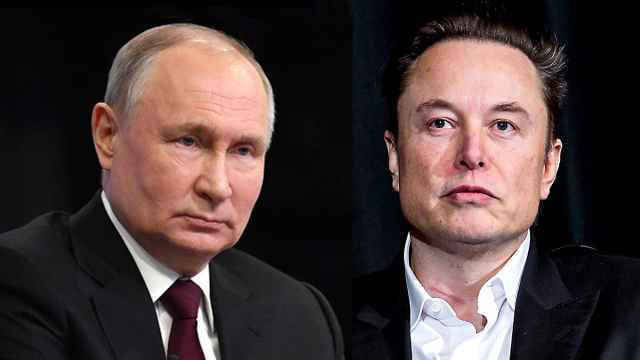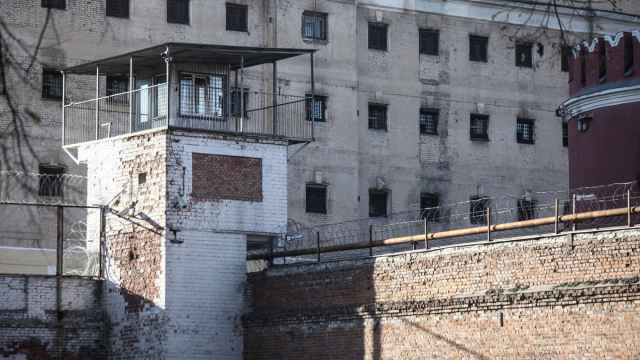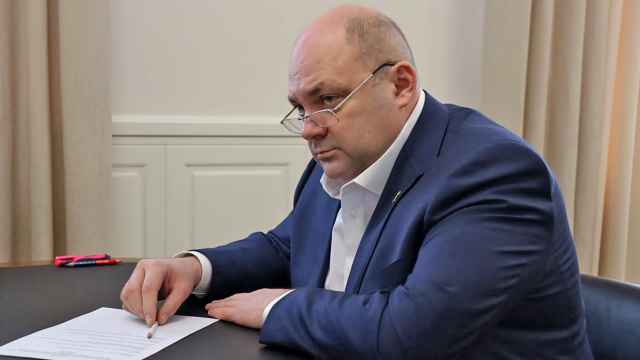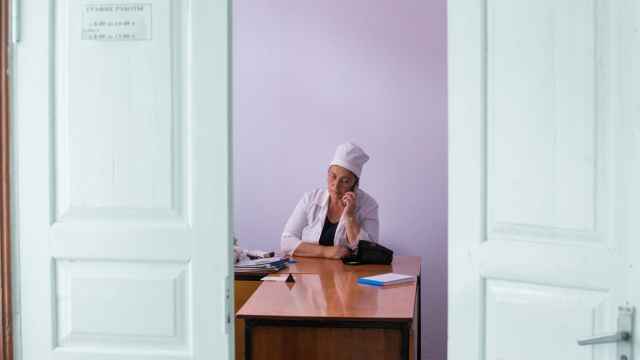Autocratic Belarussian leader Alexander Lukashenko looked set to win a fifth term as president Sunday in a largely uncontested and protest-free election that is likely to pave the way for a thaw in relations with European countries and a possible confrontation with neighboring Russia, traditionally a staunch ally.
Exit polls conducted by a committee of youth groups gave Lukashenko, famously described as Europe's last dictator, 84.1 percent of the vote late Sunday, TASS news agency reported. Tatyana Korotkevich, the only opposition candidate, had an estimated 4.9 percent, with largely unknown pro-government candidates Siarhei Haidukevich and Mikalai Ulakhovich on 5.2 percent and 1.4 percent, the report said.
Criticized as predictable from the outset, the election was marred by credible accusations of pressure on independent journalists, fraud and massive official backing for the incumbent.
But the lack of a protest movement and government crackdown means that Western countries are now almost certain to lift sanctions on Belarus and seek to boost economic ties, a trend certain to fuel concern in Moscow that another former Soviet country on its western border is slipping out of its orbit.
"These developments make Russia a bit nervous," said Artyom Shraibman, a Minsk-based political commentator for the Belarussian tut.by news website.
Rebuffing the Kremlin
The EU will lift asset freezes and travel bans against Belarussian officials including Lukashenko for four months following the election, unless any eleventh-hour violations are recorded, Reuters cited diplomatic sources as saying Friday.
"The consensus is finally there and now it is just a formal decision to be taken toward the end of October, assuming Lukashenko doesn't organize a clampdown on political dissent after the elections," Reuters cited an unidentified senior EU diplomat as saying.
Reports that sanctions could be lifted first circulated shortly after Lukashenko pardoned and released several political prisoners in August.
But while cozying up to Europe, Lukashenko has appeared to distance himself from Moscow.
Last week, the Belarussian leader said his country would not host a Russian military base, despite President Vladimir Putin ordering Russian officials to sign such an agreement in September.
"I don't know anything about this. The person who should be taking this decision — me — doesn't know anything about it," Lukashenko said Tuesday, the state-controlled BELTA news agency reported. "Maybe they [Moscow] are worried that we are leaving for the West, and raised this topic so that the West starts to ask, or doubt, whether we want to normalize relations."
Lukashenko's announcement followed a protest attended by hundreds of people in Minsk against the base, which has been under discussion between Russian and Belarussian officials for at least a year.
The apparent turn away from Moscow — whose military has been more aggressive since the Ukraine crisis began last year — is the latest in a series of such moves by Lukashenko. Earlier this year, he joined most Western leaders in not showing up for set-piece celebrations in Moscow to mark the 70th anniversary of the end of World War II.
Winning From Ukraine
The rapid deterioration of ties between Russia and the West triggered by Moscow's annexation of Crimea and support for rebels fighting Kiev troops in eastern Ukraine has also given Lukashenko the opportunity to position himself as a peacemaker and portray himself in a more positive light to the West.
Last year, the Belarussian leader said that Putin's recent foreign policy could mean Lukashenko losing the title of Europe's last dictator, bestowed on him by U.S. officials.
"I told Putin that after the Crimea annexation, people might no longer call me Europe's last dictator," he said in an interview to Ukrainian television in March 2014.
Lukashenko has used the Ukraine crisis to play a mediator role. Peace talks hosted in Minsk and attended by Putin as well as French President Francois Hollande, German Chancellor Angela Merkel and Ukrainian President Petro Poroshenko eventually led to a cease-fire in eastern Ukraine.
Belarussian business has also sought to capitalize on the crisis.
Belarussian companies have used Russia's tit-for-tat Western food import ban as an opportunity, re-packaging Western foods — including fish and tropical fruit — and shipping them across the border. The country's national airline, Belavia, announced it would boost regional flights last month after Kiev banned Russian airlines from its airspace and Moscow reciprocated in kind.
Poroshenko has been a de facto ambassador for Belarus in the West and has worked to rehabilitate Lukashenko, according to Dmitry Bolkunets, an expert on Belarus at Moscow's Higher School of Economics, who also compared the friendship to Lukashenko's brief association with Georgia's then-President Mikheil Saakashvili after Russia and Georgia fought a brief war in 2008.
Economic Doldrums
A key transit nation for goods flowing in and out of Russia, the Belarussian economy is very closely integrated with Russia's and Minsk is part of a Moscow-led customs union.
The close ties meant that the Belarussian economy suffered a sharp contraction and its currency collapsed this year, in sync with Russia, where low oil prices and Western sanctions have caused economic woes and a sharp devaluation of the ruble.
Belarus lost nearly $3 billion due to economic turmoil in Russia following Moscow's annexation of Crimea, Lukashenko said in June.
The Belarussian economy could contract by up to 4 percent by the end of the year, according to experts.
Minsk is expected to seek Western loans and investment if sanctions are lifted, and exploit European money markets. During a visit to New York last month for the United Nations General Assembly, Lukashenko gave International Monetary Fund head Christine Lagarde a bunch of flowers.
'Small Steps'
Few expect any dramatic shift in Minsk's allegiances — and some analysts see Lukashenko's apparent re-orientation toward the EU as a tactic to extort financial help from Moscow, which has traditionally helped its smaller neighbor stay afloat through loans and subsidized energy exports.
"Belarus' main strategic partner is, and will remain, Russia," said expert Bolkunets.
Soon to enter his 22nd year in power, Lukashenko is widely known among his supporters as "Batka" — father — and appears to be grooming his 11-year-old son Nikolai to be his successor. Nikolai accompanied his father and the official Belarus delegation to New York last month, and also escorted Lukashenko to the polling station Sunday, dressed in an identical suit and tie to his father.
The political opposition in Belarus appears to be weak at the moment because it is fractured and fears street protests because of the recent violent power transition in neighboring Ukraine.
Experts also point to the 2010 presidential election, which began in a surprisingly free atmosphere but ended in violence, with the dispersing of a rally in Minsk on election night and the arrest of 700 people.
"This will not be a radical turn toward Europe because it's too dangerous," said political commentator Shraibman. "But we will see small steps and signs."
Contact the author at h.amos@imedia.ru
A Message from The Moscow Times:
Dear readers,
We are facing unprecedented challenges. Russia's Prosecutor General's Office has designated The Moscow Times as an "undesirable" organization, criminalizing our work and putting our staff at risk of prosecution. This follows our earlier unjust labeling as a "foreign agent."
These actions are direct attempts to silence independent journalism in Russia. The authorities claim our work "discredits the decisions of the Russian leadership." We see things differently: we strive to provide accurate, unbiased reporting on Russia.
We, the journalists of The Moscow Times, refuse to be silenced. But to continue our work, we need your help.
Your support, no matter how small, makes a world of difference. If you can, please support us monthly starting from just $2. It's quick to set up, and every contribution makes a significant impact.
By supporting The Moscow Times, you're defending open, independent journalism in the face of repression. Thank you for standing with us.
Remind me later.



